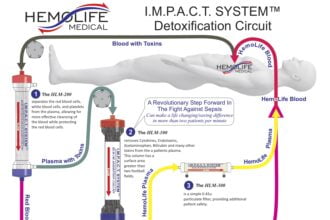
This post is by Neel Shah, MD, Christopher Moriates, MD, and Vineet Arora of Costs of Care.

This post is by Neel Shah, MD, Christopher Moriates, MD, and Vineet Arora of Costs of Care.
At a time when one in three Americans report difficulty paying medical bills, up to $750 billion is being spent on care that does not help patients become healthier. Although physicians are routinely required to manage expensive resources, traditional medical training offers few opportunities to learn how to deliver the highest quality care at the lowest possible cost. While the gap is glaring the problem is not new.
In 1975, the department of medicine at Charlotte Memorial Hospital initiated a system to monitor medical costs generated by house officers. In the Journal of Medical Education leaders of the Charlotte initiative described how simply being aware of how clinical decisions impact the costs of care could decrease inpatient length of stay by 21%. Over the last four decades there have been dozens of similar efforts to educate medical students and residents about opportunities to improve the value of care. Some interventions were simple like the one in Charlotte, and simply revealed the cost of routine tests to their trainees. Others provided more sophisticated didactics, interrogated medical records to give trainee-specific feedback on utilization, or creatively leveraged the hospital computer order-entry systems.
To date, the results from such efforts have been mixed. Steven Schroeder at UCSF famously described the “Failure of Physician Education as a Cost-containment Strategy” in a 1984 JAMA editorial. There are likely several reasons why past efforts may have had limited success in bridging the current gap in medical education. For one, the incentives for physicians to deliver high value care have seldom been well aligned with the patient or payer incentives to get the most bang for their buck. It is no coincidence that most of the published papers describing this type of education appear during cycles of prominent political debate on the need for healthcare reform. The ability of any successes to take root have seemed limited by the transience in political and professional will to make the healthcare system in the United States perform better.
Election cycles in the early 1970’s, 1980’s and 1990’s shared similar public mandates to make healthcare more affordable but progress occurred in small fits and starts. In 2010 a major step forward was taken in the passage of the Patient Protection and Affordable Care Act, catalyzing a sweeping response within the medical profession. The Institute of Medicine released an influential report cataloguing the opportunities for physicians to provide the “best care at lower cost”. The American College of Physicians wrote the need to reduce unnecessary care into their professional ethics manual and the ABIM Foundation recruited 21 medical specialties to create “top 5” lists of unnecessary tests.
Although previous medical educators were limited by the circumstances of the health system, this time around is very different. Patients and policymakers are united in demanding better value from us and the professional momentum to improve is tremendous. The opportunity for medical educators to offer ideas that have traction has never been better.
Whether you have implemented something in the past that is due for renewal, are working on something now that should be scaled, or simply have a bright idea for a future project, we want to hear about it. The Teaching Value and Choosing Wisely ® Competition opens up this week – send us a short abstract and we will collectively help rising generation of clinicians remove unnecessary care from their practice. Learn more at http://teachingvalue.org/competition







